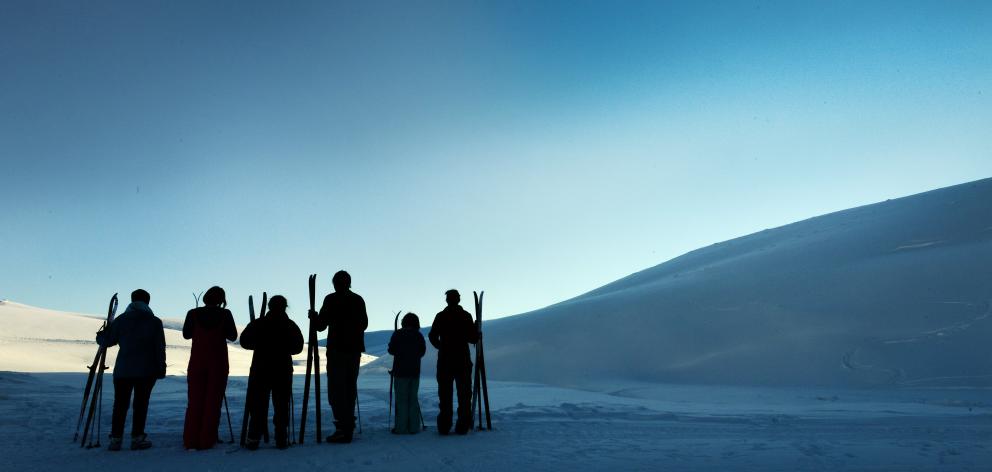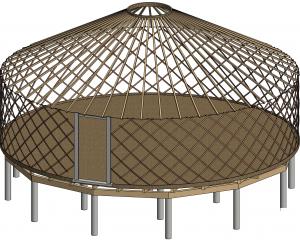
Despite a lack of early snow, Queenstown skifield operator NZSki is reporting another healthy season.
Other resort business owners say they have had a solid if unspectacular winter, with timely snowfalls and after-dark flights making up for a quiet start.
Weather permitting, this weekend will be the final for the season for Coronet Peak and The Remarkables ski areas.
A snow drought forced Coronet Peak to close a fortnight after its June 11 opening, beginning a 17-day hiatus that was finally broken by cooler temperatures and a massive snow-making effort.
NZSki chief executive Paul Anderson said The Remarkables’ closing date was extended by a week to match that of its sister field because both had sufficient snow and enough visitors to make it worthwhile.
Although the past week or two had been "quiet" compared with other times of the season, he was still seeing good numbers of locals, especially season-pass holders, as well as casual visitors.
Visitor numbers at Coronet Peak had been down on last year, but it had recovered well from a slow start, Mr Anderson said.
"Apart from the 17 days we lost in June and early July, we’re well above the numbers we were planning for.
"But it’s difficult to make up that many lost days."

Offering early-bird season passes for $599 had been a big success.
"We captured a huge part of the local market."
The passes had kept locals coming until the end of the season, and enabled "huge growth" in night skiing at Coronet Peak.
The launch of after-dark flights could not have been better timed, helping to offset the late start to the season, he said.
They had enticed more visitors from Auckland, and kept Australians flowing into the resort despite ski resorts in that country getting good early season snow.
Snowrentals managing director Stefan Crawford said he was pleased by the season given the lack of early snow.
"When you have a bad start, you can suffer at the end, but that didn’t happen."
Night flights had had a marked effect, with more customers hiring gear in the evenings after flying in and returning it in the mornings before flying out.
Small Planets Sports owner Darryl Tatom said the lack of snow in June and early July had had an effect, but the store had "kind of made up for it" in August.
"It wasn’t a bad year. I’d call it a nice average year."
Lone Star restaurant and bar owner Dave Gardiner said he had noticed fewer Australians early in the season as a result of the warm weather, but as the season "came right" in July and August, business in the resort had picked up.
Over in the Wanaka area, Treble Cone had its best season in terms of visitor numbers, despite a delayed start.
Chief executive Jackie van der Voort said more people had visited the skifield this year than in any other since the Treble Cone company formed in 1968.
"Even with our late start, it was an unbelievable season, especially opening up with a 50cm snow day," Ms van der Voort said.
A planned June 23 opening was postponed until July 16 because of warm weather and a lack of snow.
Stability in pricing and improvements to the visitor experience meant the vibe Treble Cone had been building in previous years had paid off, Ms van der Voort said.
The warm weather did not have the same impact on neighbouring Cardrona, with the resort opening on time and also reporting high visitor numbers.
With one week left until the end of the season, general manager Bridget Legnavsky said the resort was tracking well above last year’s visitor numbers, but official numbers would not be known until after the resort had closed.
"We opened on time and we are closing on time, and considering we didn’t have a huge amount of snow we are pretty happy with that."
Snowfall this year was about 2.5m, compared with 3m last year, Ms Legnavsky said.
Better weather meant the resort was closed for only two days this season compared with nine last year, she said.
When it did snow, it made for some of the best powder conditions she could remember, Ms Legnavsky said.
"All and all it was a really great season."
Once the season had finished, the focus would shift to building the new $10million lift before next winter, she said.
"It will be a busy summer for us constructing such a huge thing and we will be really excited about opening that next year."
The Snow Farm was also affected by the late snow, opening almost a month later than planned.
The delay did not affect the number of visitors and more people used the facilities this year than in 2015.
General manager Nikki Holmes said there had been an increase in visitors across all activities at the skifield, but snowshoeing in particular had been very popular.
Mrs Holmes put the increase down to more promotion of all the activities Snow Farm offered alongside cross-country skiing.
"I think we are getting a wider range of people coming up and doing different things. It’s not just cross-country skiing; it’s snowshoeing or it’s sled dogs," Mrs Holmes said.
Staff were now preparing for the summer season, which would open on October 22.
The summer season was another area the Snow Farm was promoting and she hoped there would be an increase in visitors using the mountain this summer, Mrs Holmes said.











